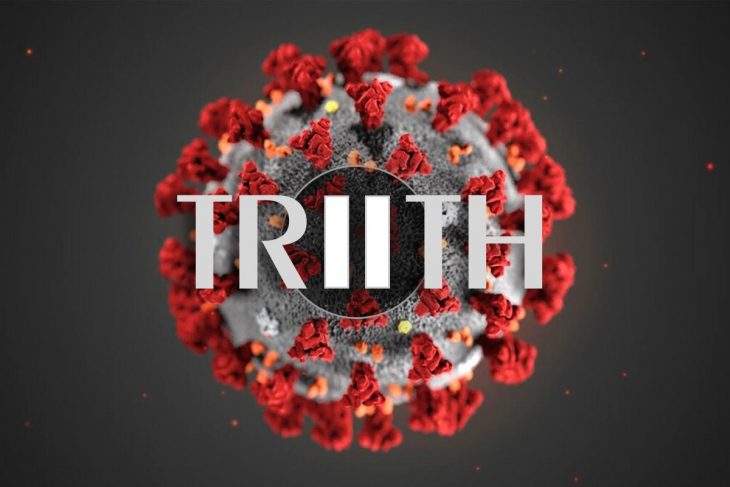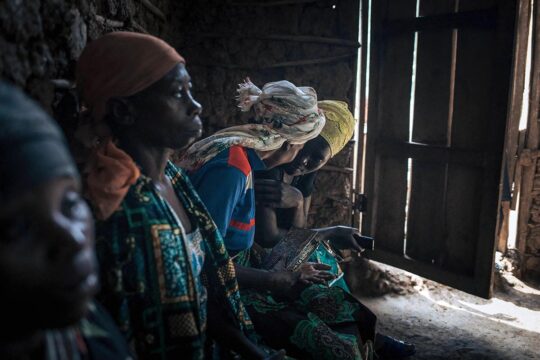Gambia’s Truth, Reconciliation and Reparations Commission (TRRC) has suspended its public hearings and outreach activities on March 18, a day after President Adama Barrow declared all schools and universities closed for 21 days and banned public gatherings. On March 15 the first case of Coronavirus was found in the small West African country, on a 20-year old woman who had flown from England.
“The public hearings will not resume until after the end of the month of Ramadan, around the first week of June. Outreach activities may resume when considered safe to do so,” said Baba Galleh Jallow, the TRRC’s executive secretary. The Commission’s secretariat will be partially closed, said Jallow, but staff may choose to come to the offices or work from home.
217 witnesses have testified before the TRRC
As things stand, the TRRC will lose two weeks of public hearings. “Unless the suspension of public hearings is forced to go beyond the first week of June, our work plan will not be affected that much,” Jallow told Justice Info, “but if the crisis persists, yes, it may.”
The thirteenth session which has now been suspended was supposed to focus on evidence of unlawful attacks on road users by former president Yahya Jammeh’s convoys. Only two witnesses, Musa Sallah and Abdoulie Barry, had time to testify. The total number of witnesses who have appeared before the Commission since the commencement of the public hearings on January 7, 2019, is now 217. They include 40 alleged perpetrators and adversely mentioned persons, and 25 Gambians from the diaspora who testified via video.
Since the start of its public hearings, the Commission completed 11 themes, including the circumstances surrounding the July 22, 1994 coup, the November 11, 1994 execution of soldiers, the June 1995 murder of former Finance minister Ousman Koro Ceesay, the violations and rights abuses carried out by the Junglers, witch-hunting by Jammeh, attacks on religious freedom, the April 2000 killings of 13 students, the crackdown on the media.
Jammeh’s HIV/AIDS treatment on the work plan
The main themes remaining on the Commission’s work plan, according to Lamin Sise, the Chair of the TRRC, are Jammeh’s HIV/AIDS and other diseases alternative treatment, enforced disappearances, the case of the 44 Ghanaians and other West African migrants killed in July 2005, the April 2016 incidents involving the National Intelligence Agency (NIA) and resulting in the death in custody of United Democratic Party member Solo Sandeng, as well as institutional hearings on the NIA, the judiciary, the National Drug Law Enforcement Agency, additional hearings on sexual and gender-based violence, and, again, the Junglers.
Sise said the Commission intends to conclude its public hearings during the first week of October, 2020. “The rest of the year will be devoted to preparation of the final report of the TRRC. As and when required, occasional public hearings may be convened,” Sise said.
Lockdown in the Seychelles
The Seychelles’ Truth, Reconciliation and National Unity Commission (TRNUC) is also on lockdown, following the Covid-19 outbreak in the island nation. Since March 14 six persons have tested positive, including two on March 18. The patients include two Seychellois and four foreigners (a Dutch couple, one Ukrainian man and his Mauritian girlfriend).
As a result, in an email to all media houses on March 19 the Commission's communication and outreach officer Tannia Labiche said the TRNUC “was implementing a lockdown, starting today for two weeks with a provisional return to work date on Monday 6th April 2020”.
The Seychelles’ usual working schedule is to hold two weeks of public hearing at the beginning of each month, but it also holds ad hoc sessions as and when necessary. The last March session, which took place from March 2 to March 13 saw the highest number of hearings behind closed doors. Speaking to local newspaper Seychelles Nation on March 14, the commission's chairperson Gabrielle McIntyre said one of their biggest challenges remains to get complainants and witnesses to come forward and speak publicly. “Normally perpetrators do come forward, tell what they did and why they did it. Here in Seychelles it is a very different situation. It's such a small country that perpetrators are afraid of coming forward and admitting it, and how they would be treated by people in the society”, she said.
The TRNUC is investigating human rights violations following the June 1977 coup d'État and the subsequent one-party state dictatorship. It started its hearings in August 2019, and has two and a half years left to complete its work. Victims had until last month to lodge their complaints.
COLOMBIA’S TRANSITIONAL JUSTICE ON HOLD
The work of Colombia's transitional justice system has also been severely disrupted after the country registered its first confirmed case on March 6th. Colombia registered 231 confirmed cases of Covid-19, including two deaths, as of Sunday March 22nd. After one week of suggested self-isolation, several cities and regions went into local lockdowns and the entire country will go into mandatory lockdown beginning, this Tuesday.
The Special Jurisdiction for Peace (JEP), the judicial arm of the system, began working remotely a week ago, suspending public hearings and court terms on all proceedings with the sole exception of habeas corpus. Justices on the tribunal's Judicial Panel for Acknowledgement have continued work on their macro-cases, interviewing victims via teleconference and registering victims and organisations as interested parties, including the Patriotic Union political party decimated by targeted murders and attacks in the 1980s and 1990s. They also extended the timeframe for victims of kidnapping by FARC to be able to submit their written observations.
The JEP's decision initially foresaw four days of interruption, which were then extended to two weeks. Its main problem is that for the moment its justices can only deliberate remotely but not rule, a decision that could change in the short term given President Iván Duque's announcement on Friday of a three-week nationwide lockdown until April 13th and his call for courts to function online. In the long run, the epidemic will probably force Colombia's justice system - including the JEP - to transition from a heavily face-to-face model to a more tech-savvy one.
The Truth and Reconciliation Commission (TRC) has seen its activities strongly affected, suspending dozens of meetings and closing down its 28 regional ‘houses of truth’ where it listens to victims. Nonetheless it had already come up with a plan for three weeks of remote work before Duque's decision, which has included strengthening its social media presence as an outreach strategy, releasing a 24-minute documentary explaining its work one year into its three-year mandate and moving online testimonies with victims - including in 23 other countries.
One of its major challenges will be choosing one new commissioner, after journalist Alfredo Molano died in October and a public call for candidates fielded 155 applications. The TRC will probably have to remotely interview candidates and come to a decision, which as JusticeInfo pointed out is a unique opportunity to build its credibility in a scenario of political bickering around truth and historical memory.





